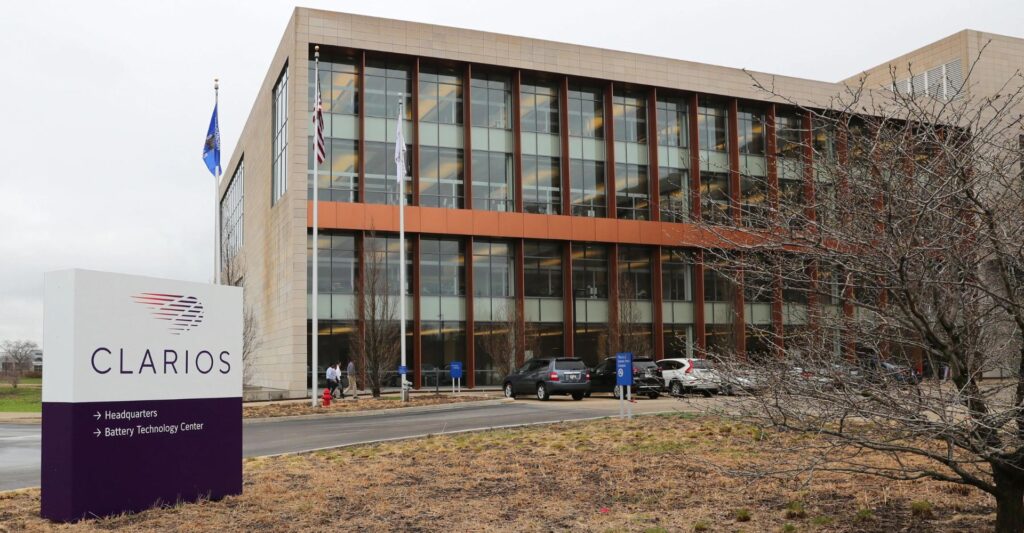Clarios and Altris Join Forces to Innovate in Sustainable Sodium-Ion Battery Tech for Automotive Industry

|
Listen to this story:
|
Key Impact Points:
- Collaboration on Sodium-Ion Battery Technology: Clarios and Altris have announced a partnership to develop sustainable low-voltage sodium-ion batteries for the automotive industry.
- Focus on Low-Voltage Automotive Applications: The project aims to create sodium-ion batteries for use in hybrid and electric vehicles’ low-voltage systems, which power critical functions like steer-by-wire and autonomous features.
- Sustainability and Recyclability of Na-ion Batteries: Sodium-ion batteries, made from abundant and conflict-free materials like salt and wood, offer an inherently sustainable and easily recyclable option.
- Strategic Roles of Clarios and Altris: Clarios will leverage its expertise in low-voltage systems to define specifications for the sodium-ion cells, while Altris will focus on developing cells adapted to automotive market needs.
- Potential for Massive Scale Impact: The partnership aims to mass-produce sodium-ion batteries, which could significantly advance automotive battery technology and contribute to the industry’s circularity goals.
Project will focus on low-voltage automotive applications
Clarios, a global leader in advanced low-voltage battery solutions, and Altris, a pioneer in sustainable sodium-ion battery technology, announced they have created an innovative partnership aimed at developing low-voltage sodium-ion batteries for the automotive industry.
Every vehicle, including hybrid electric and electric vehicles, requires a low-voltage energy source to power critical systems and functions. As hybrid and electric vehicles continue to evolve, the low-voltage network is being asked to support an increased number of software-based functions such as steer-by-wire, break-by-wire, autonomous functions, and enhanced in cabin experiences.
This transformation is leading automakers to explore multi-battery solutions that include lithium-ion, absorbent glass mat (AGM) lead-acid batteries, and other chemistries for some of the world’s most iconic vehicles. While lead-acid batteries represent the best example of a circular economy in the world, and lithium-based products continue to evolve, Clarios chemistry agnostic and circular approach has become of strategic importance.
Sodium-ion (Na-ion) batteries are inherently sustainable and easy to recycle, made from salt, wood, iron, and air. The materials used to produce Na-ion cells are abundant and available – free from conflict minerals and toxic elements. The new joint collaboration program aims to develop an Na-ion battery with a potential of up to 60 volts to support automotive applications in both new vehicles and for aftermarket replacements, that also can complement a multi-battery low-voltage system configuration.
“Clarios brings extensive experience with low-voltage systems within the automotive sector and will play a leading role in defining and optimizing the specifications for the sodium-ion cells,” said Federico Morales Zimmermann, vice president and GM, Global Customers, Products and Engineering at Clarios.
Related Article: Automotive Electronic Control Unit Market Worth $156.0 Billion by 2030: Grand View Research, Inc.
Altris, a leader in sodium-ion cathode material and battery cell technology, will focus on the development of Na-ion cells specifically adapted to the needs of the low-voltage automotive battery market.
“Altris wants to bring the world better, safer and truly sustainable sodium-ion batteries. We’re continuously investigating new applications where our technology can make significant impact at massive scale. As such, we’re very excited to team up with Clarios who share our strong ESG focus, to develop low-voltage cells for the automotive industry. With this partnership, we’re able to access every third vehicle driven globally and accelerate the green transition“, said Björn Mårlid, CEO of Altris.
The long-term goal is to develop a detailed production plan for low-voltage battery systems using these Na-ion cells. The companies believe the mass production of Na-ion batteries would represent an important advancement in automotive battery technology and an important step in supporting the circularity goals of the automotive industry.
The companies have agreed not to disclose financial details of the development agreement.






